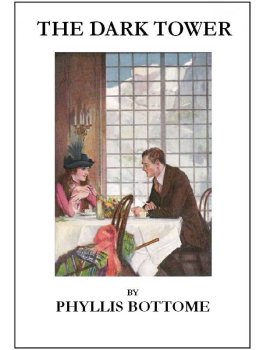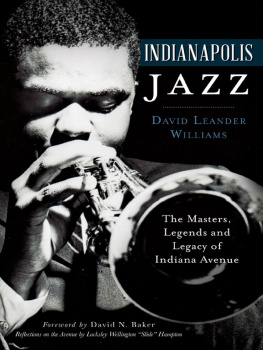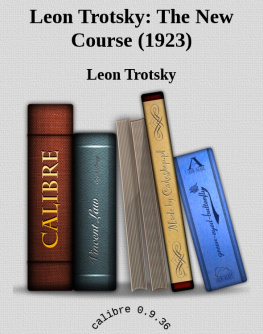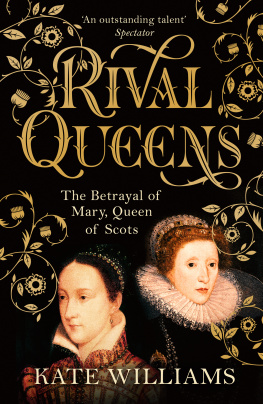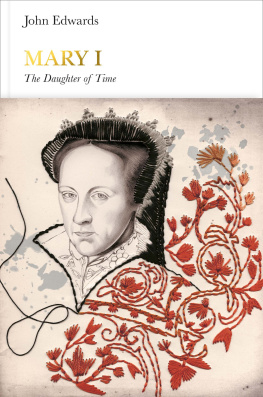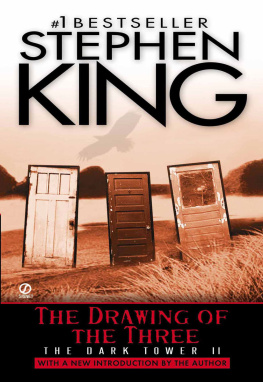Phyllis Bottome - The Dark Tower
Here you can read online Phyllis Bottome - The Dark Tower full text of the book (entire story) in english for free. Download pdf and epub, get meaning, cover and reviews about this ebook. genre: Romance novel / Prose. Description of the work, (preface) as well as reviews are available. Best literature library LitArk.com created for fans of good reading and offers a wide selection of genres:
Romance novel
Science fiction
Adventure
Detective
Science
History
Home and family
Prose
Art
Politics
Computer
Non-fiction
Religion
Business
Children
Humor
Choose a favorite category and find really read worthwhile books. Enjoy immersion in the world of imagination, feel the emotions of the characters or learn something new for yourself, make an fascinating discovery.
- Book:The Dark Tower
- Author:
- Genre:
- Rating:3 / 5
- Favourites:Add to favourites
- Your mark:
- 60
- 1
- 2
- 3
- 4
- 5
The Dark Tower: summary, description and annotation
We offer to read an annotation, description, summary or preface (depends on what the author of the book "The Dark Tower" wrote himself). If you haven't found the necessary information about the book — write in the comments, we will try to find it.
The Dark Tower — read online for free the complete book (whole text) full work
Below is the text of the book, divided by pages. System saving the place of the last page read, allows you to conveniently read the book "The Dark Tower" online for free, without having to search again every time where you left off. Put a bookmark, and you can go to the page where you finished reading at any time.
Font size:
Interval:
Bookmark:
THE DARK TOWER
BY PHYLLIS BOTTOME
WITH ILLUSTRATIONS BY J. H. GARDNER SOPER
NEW YORK THE CENTURY CO. 1916
Copyright, 1916, by THE CENTURY CO.
Published, September, 1916
Dauntless the slughorn to my lips I set, and blew Child Roland to the dark tower came.
Robert BrowningTo W. W. D. H.
God forbid that I should do this thing.
If our time be come, let us die manfully for our brethren
And let us not stain our honour.
I Maccabees, ix, 10.PART I

CHAPTER I
Winn Staines respected God, the royal family, and his regiment; but even his respect for these three things was in many ways academic: he respected nothing else.
His father, Admiral Sir Peter Staines, had never respected anything; he went to church, however, because his wife didnt. They were that kind of family.
Lady Staines had had twelve children. Seven of them died as promptly as their constitutions allowed; the five survivors, shouted at, quarreled over, and soundly thrashed, tore themselves through a violent childhood into a rackety youth. They were never vicious, for they never reflected over or considered anything that they did.
Winn got drunk occasionally, assaulted policemen frequently, and could carry a small pony under each arm. Charles and James, who were in the navy, followed in the footsteps of Sir Peter; that is to say, they explored all possible accidents on sea or ashore, and sought for a fight as if it were a mislaid crown jewel.
Dolores and Isabella had to content themselves with minor feats and to be known merely as the terrors of the neighborhood, though ultimately Dolores succeeded in making a handsome splash by running away with a prize-fighting groom. She made him an excellent wife, and though Lady Staines never mentioned her name again, it was rumored that Sir Peter met her surreptitiously at Tattersalls and took her advice upon his horses.
Isabella, shocked and outraged by this sisterly mischance, married, in the face of all probability, a reluctant curate. He subsided into a family living given to him by Sir Peter, and tried to die of consumption.
Isabella took entire control of the parish, which she ruled as if it were a quarter-deck. She did not use her fathers language, but she inherited his voice. It rang over boys clubs and into mothers meetings with the penetration and volume of a megaphone.
Lady Staines heartily disliked both her daughters, and she appeared not to care very deeply for her sons, but of the three she had a decided preference for Winn. Winn had a wicked temper, an unshakable nerve, and had inherited the strength of Sir Peters muscles and the sledge-hammer weight of Lady Stainess wit. He had been expelled from his private school for unparalleled insolence to the head master; a repetition of his summing up of that gentlemans life and conduct delighted his mother, though she assisted Sir Peter in thrashing him for the result.
It may have contributed to his mothers affection for him that Winn had left England at nineteen, and had reached thirty-five with only two small intervals at home.
His first leave had kept them all busy with what the Staines considered a wholly unprovoked lawsuit; a man whom Winn had most unfortunately felt it his duty to fling from a bus into the street, having the weak-minded debility to break his leg had the further audacity to claim enormous damages. The Staines fought the case en bloc with splendid zeal, and fiery eloquence. It would probably have resulted better for their interests if they had not defied their own counsel, outraged the respectable minds of the jury, and insulted the learned judge. Under these circumstances they lost their case, and the rest of Winns leave was taken up in the Familys congenial pursuit of laying the blame on each other.
The second and more fatal visit heralded Winns marriage. He had not had time to marry before. It would not be true to say that women had played no part in his experiences, but the part they had played was neither exalted nor durable. They figured in his imagination as an inferior type of game, tiresome when captured. His life had been spent mainly in pursuit of larger objects. He had been sent straight from Sandhurst to South Africa, where he had fought with violence and satisfaction for two years, winning the D. S. O., a broken nose, and a cut across the face. When the fighting was over, he obtained leave for a two-years exploring expedition into the heart of West Africa. Ten men had gone on this expedition, and two survived. Winn never talked of these experiences, but he once admitted to a friend that the early study of his sisters characters had saved him in many awkward moments. He had known how to appeal to female savages with the unerring touch of experience.
From West Africa he was called to the Indian frontier, where he put in seven years in variegated and extremely useful service. He received his majority early, and disappeared for two years into Tibet, Manchuria, and China. After that he came back to England for polo, and met Estelle Fanshawe. She was lovely, gentle, intensely vain, and not very truthful.
Lady Staines disposed of her at once as a mincing ninny. The phrase aggravated Winn, and his fancy deepened. It was stimulated by the fact that Estelle was the belle of the neighborhood and had a large supply of ardent admirers. It was almost like running a race with the odds against you. Winn was not a conceited man, and perhaps he thought the odds more against him than they actually were. He was the second son of a man who was immensely rich, (though Sir Peter was reported stingy to his children). Everybody knew who the Staines were, while the Fanshawes after every effort and with nearly every attraction had not become a part of public knowledge. Besides, Estelle had been made love to for some time, and Winns way was undeniably different from that of her other admirers.
He met her at a dance, and insisted upon dancing with her the whole evening. He took her card away from her, and scored off all her indignant partners. In the interval of these decisive actions he made love to her in a steady, definite way that was difficult to laugh at and impossible to turn aside.
When he said good-night to her he told her that he would probably come and see her soon. She went away in a flutter, for his words, though casual, had had a sharply significant sound; besides, he had very nearly kissed her; if she had been more truthful, she would have said quite.
She didnt, in thinking it over, know at all how this had happened, and she generally knew precisely how these things happened.
Lady Staines told her son at breakfast a few mornings later what she thought of Miss Fanshawe.
Shes a girl, she observed, knocking the top off her egg, who will develop into a nervous invalid or an advanced coquette, and it entirely depends upon how much admiration she gets which she does. I hear shes religious, too, in a silly, egotistical way. She ought to have her neck wrung.
Sir Peter disagreed; they heard him in the servants hall.
Certainly not! he roared; certainly not! I dont think so at all! The girls a damned pretty piece, and the mans one of my best tenants. Hes only just come, and hes done wonders to the place already. And I wont have the boy crabbed for fancying a neighbor! Its very natural he should. You never have a woman in the house fit to look at. Who the devil do you expect your boys to marry? Negresses or bar-maids?
Gentlewomen, said Lady Staines, firmly, unless their fathers behavior prevents them from being accepted.
Winn said nothing. He got up and began cutting ham at the sideboard. His mother hesitated a moment; but as she had only roused one of her men, she made a further effort in the direction of the other.
Font size:
Interval:
Bookmark:
Similar books «The Dark Tower»
Look at similar books to The Dark Tower. We have selected literature similar in name and meaning in the hope of providing readers with more options to find new, interesting, not yet read works.
Discussion, reviews of the book The Dark Tower and just readers' own opinions. Leave your comments, write what you think about the work, its meaning or the main characters. Specify what exactly you liked and what you didn't like, and why you think so.

